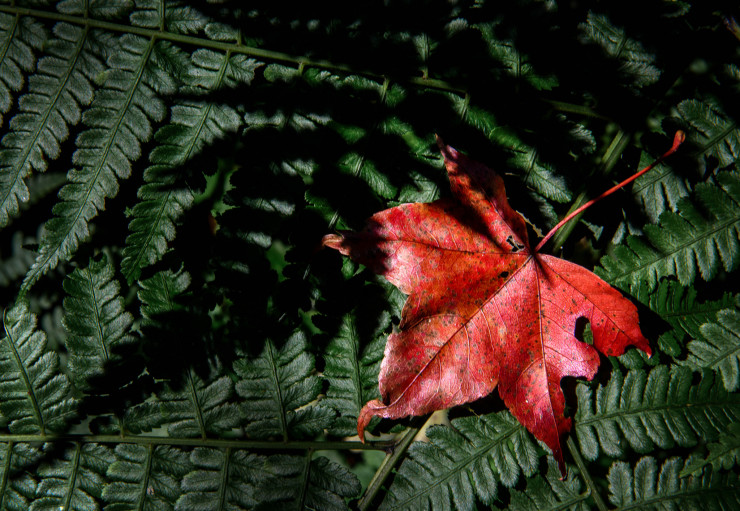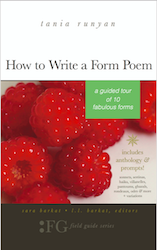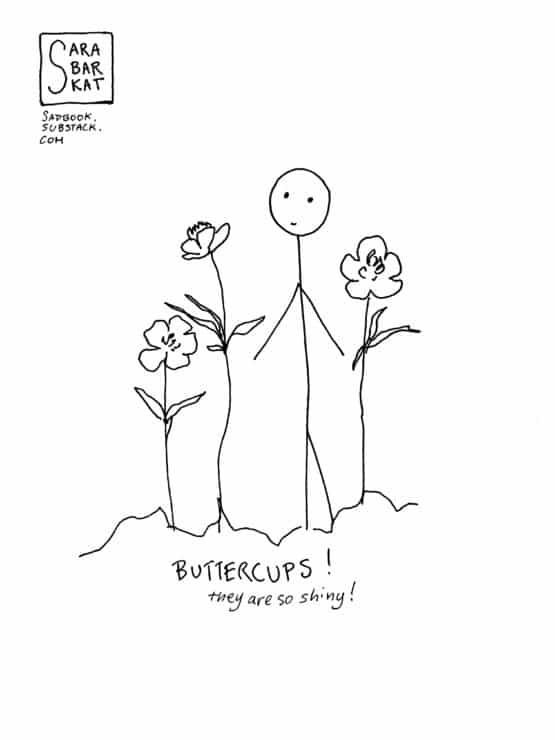10 of the Best Garden Poems
I am, as I write, eating a strawberry, just the slightest bit tart, that I plucked from my garden this afternoon. Or, one could say I plucked it from the jaws of the so-far unidentified critter who dines in the garden. I’d say it’s a rabbit, but the way we have the strawberry patch fenced and netted, it would take a very special rabbit to find his way in. It is more likely a squirrel, and one with truly dreadful garden manners at that. I don’t mind sharing a few of my berries, but this one takes little nibbles from so many, never finishing one. It’s a little like having Goldilocks hopping around from plant to plant, looking for the one that is just right.
The rest of the garden is flourishing, with the tomato, cucumber, pepper and tomatillo plants promising to produce soon (a single plump tomato just popped up on one of the Early Girl plants this week, in fact). And the carrots are begging to be thinned. So while we all wait for our flowers to bloom, for our plants to produce, and for our neighborly critters to stop eating all the berries, enjoy this great collection of garden poems, from our garden to yours.
1.
Loneliness
These autumn gardens, russet, gray and brown,
The sward with shrivelled foliage strown,
The shrubs and trees
By weary wings of sunshine overflown
And timid silences, —
Since first you, darling, called my spirit yours,
Seem happy, and the gladness pours
From day to day,
And yester-year across this year endures
Unto next year away.
Now in these places where I used to rove
And give the dropping leaves my love
And weep to them,
They seem to fall divinely from above,
Like to a diadem
Closing in one with the disheartened flowers.
High up the migrant birds in showers
Shine in the sky,
And all the movement of the natural hours
Turns into melody.
— Trumbull Stickney
BUY ‘HOW TO WRITE A FORM POEM’ NOW!
2.
January brings the snow,
Makes our feet and fingers glow.
February brings the rain,
Thaws the frozen lake again.
March brings breezes, loud and shrill,
To stir the dancing daffodil.
April brings the primrose sweet,
Scatters daisies at our feet.
May brings flocks of pretty lambs
Skipping by their fleecy dams.
June brings tulips, lilies, roses,
Fills the children’s hands with posies.
Hot July brings cooling showers,
Apricots, and gillyflowers.
August brings the sheaves of corn,
Then the harvest home is borne.
Warm September brings the fruit;
Sportsmen then begin to shoot.
Fresh October brings the pheasant;
Then to gather nuts is pleasant.
Dull November brings the blast;
Then the leaves are whirling fast.
Chill December brings the sleet,
Blazing fire, and Christmas treat.
— Sara Coleridge
3.
In the Garden
We waited for the sun
To break its cloudy prison
(For day was not yet done,
And night still unbegun)
Leaning by the dial.
After many a trial—
We all silent there—
It burst as new-arisen,
Throwing a shade to where
Time travelled at that minute.
Little saw we in it,
But this much I know,
Of lookers on that shade,
Her towards whom it made
Soonest had to go.
— Thomas Hardy
Click to get FREE 5-Prompt Mini-Series
4.
Bulb Planting Time
Last night he said the dead were dead
And scoffed my faith to scorn;
I found him at a tulip bed
&nsbp; When I passed by at morn.
“O ho!” said I, “the frost is near
And mist is on the hills,
And yet I find you planting here
&nsbp; Tulips and daffodils.”
“‘Tis time to plant them now, ” he said,
“If they shall bloom in Spring”;
“But every bulb, ” said I, “seems dead,
And such an ugly thing.”
“The pulse of life I cannot feel,
The skin is dried and brown.
Now look!” a bulb beneath my heel
I crushed and trampled down.
In anger then he said to me:
“You’ve killed a lovely thing;
A scarlet blossom that would be
Some morning in the Spring.”
“Last night a greater sin was thine, ”
To him I slowly said;
“You trampled on the dead of mine
And told me they are dead.”
— Edgar Guest
5.
For him [the autistic child], everything is form.
—Jane Kessler
Glory be to God for dappled things…
All things counter, original, spare, strange….
—Gerard Manley Hopkins
The boy is blowing bubbles
with his mother, shimmering orbs
that glitter and dance
on the face of the lawn.
He prances after them, staring
with the deep mirror of his eyes
as they pop and disappear.
Flapping his arms, he chases them
toward the garden cosmos,
their mauve and lilac gowns
of silk voile waltzing
in the breeze.
He orbits around his mother
as she dips in her wand,
produces these baubles
from breath and film.
The glassy bubbles rise in a swirl
of pink and blue, a moment’s iridescence.
This is the only magic the mother can conjure;
she cannot help him talk or say his name.
But they can do this together,
blow bubbles on a breezy afternoon,
make a strand of hand-blown beads
to grace the throat of the lawn.
— Barbara Crooker, author of Selected Poems
6.
Green groweth the holly,
So doth the ivy.
Though winter blasts blow never so high,
Green groweth the holly.
As the holly groweth green
And never changeth hue,
So I am, ever hath been,
Unto my lady true.
As the holly groweth green
With ivy all alone
When flowers cannot be seen
And greenwood leaves be gone,
Now unto my lady
Promise to her I make,
From all other only
To her I me betake.
Adieu, mine own lady,
Adieu, my special
Who hath my heart truly
Be sure, and ever shall.
— Henry VIII, King of England, for more see Reading Monarchs Writing: The Poetry of Henry VIII, Mary Stuart, Elizabeth I, and James VI/I
7.
Nothing is so beautiful as spring—
When weeds, in wheels, shoot long and lovely and lush;
Thrush’s eggs look little low heavens, and thrush
Through the echoing timber does so rinse and wring
The ear, it strikes like lightnings to hear him sing;
The glassy peartree leaves and blooms, they brush
The descending blue; that blue is all in a rush
With richness; the racing lambs too have fair their fling.
What is all this juice and all this joy?
A strain of the earth’s sweet being in the beginning
In Eden garden.—Have, get, before it cloy,
Before it cloud, Christ, lord, and sour with sinning,
Innocent mind and Mayday in girl and boy,
Most, O maid’s child, thy choice and worthy the winning.
— Gerard Manley Hopkins, more Hopkins: Poems
8.
It didn’t rain all summer.
Instead of water, my father used prayer
for his garden. Despite his friends’ laughter,
he planted spinach and lettuce,
countless rows of cucumbers
in beds lined up meticulously
ignoring old people’s warnings
about the drought.
Every afternoon, he pushed his hat back,
wiped off his sweat,
and looked up at the empty sky,
the sun scorching
the acacia trees shriveling in the heat.
In July, the ground looked like cement.
Like the ruins of a Roman thermal bath,
it kept the vestiges of a lost order,
traces of streams long gone.
He yelled at me to step back
from the impeccable architecture
of climbing green beans,
the trellis for tomatoes,
although there was nothing to be seen,
no seedlings, no tendrils,
not even weeds,
just parched, bare ground—
as if I were disturbing
the hidden sleep of seeds.
— Lucia Cherciu, from Edible Flowers
Click to get FREE 5-Prompt Mini-Series
9.
III
Spring is like a perhaps hand
(which comes carefully
out of Nowhere)arranging
a window, into which people look(while
people stare
arranging and changing placing
carefully there a strange
thing and a known thing here)and
changing everything carefully
spring is like a perhaps
Hand in a window
(carefully to
and fro moving New and
Old things, while
people stare carefully
moving a perhaps
fraction of flower here placing
an inch of air there)and
without breaking anything.
— e.e. cummings, from Selected Poems
10.
The Mower Against Gardens
Luxurious man, to bring his vice in use,
Did after him the world seduce,
And from the fields the flowers and plants allure,
Where nature was most plain and pure.
He first enclosed within the garden’s square
A dead and standing pool of air,
And a more luscious earth for them did knead,
Which stupefied them while it fed.
The pink grew then as double as his mind:
The nutriment did change the kind.
With strange perfumes he did the roses taint,
And flowers themselves were taught to paint.
The tulip, white, did for complexion seek,
And learned to interline its cheek;
Its onion root they then so high did hold,
That one was for a meadow sold.
Another world was searched, through oceans new,
To find the marvel of Peru.
And yet these rarities might be allowed,
To man, that sovereign thing, and proud,
Had he not dealt between the bark and tree,
Forbidden mixtures there to see.
— Andrew Marvell
More Garden Poems:
Gerda in the Garden
Meditation on Hunger at 2 a.m.
The earth’s economy
In Perpetual Spring
Herbal
Under the Harvest Moon
Other Gardens
Petit a Petit
My Life with a Gardener
Photo by 白士 李, Creative Commons license via Flickr. Featured poems appeared previously in Every Day Poems with permission of the poet or publisher, appeared in our community poetry writing prompts or are in the public domain.
- Earth Song Poem Featured on The Slowdown!—Birds in Home Depot - February 7, 2023
- The Rapping in the Attic—Happy Holidays Fun Video! - December 21, 2022
- Video: Earth Song: A Nature Poems Experience—Enchanting! - December 6, 2022




Jody Lee Collins says
I was so glad to see Barbara Crooker’s poem here…such beautiful images. What a rich round up from the ‘garden’ of poetry.